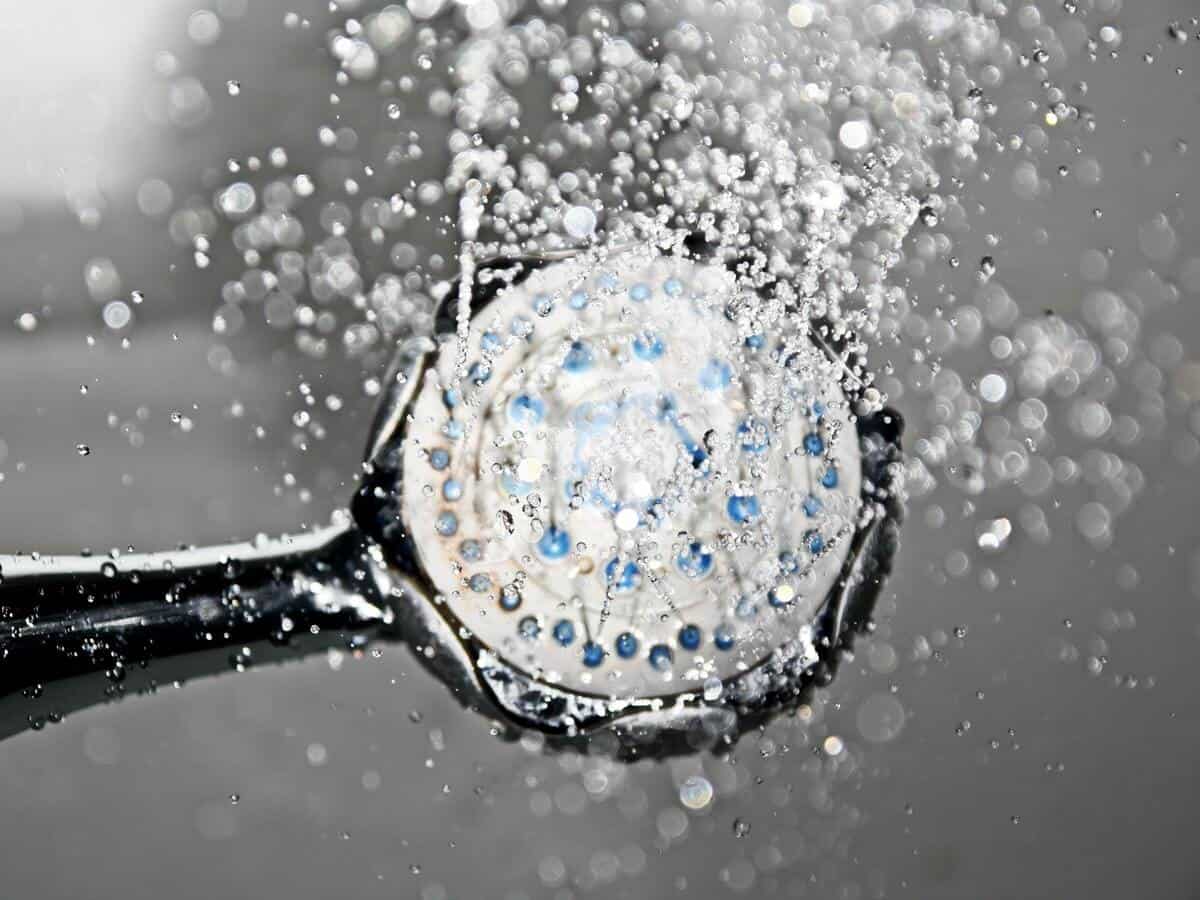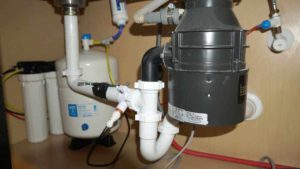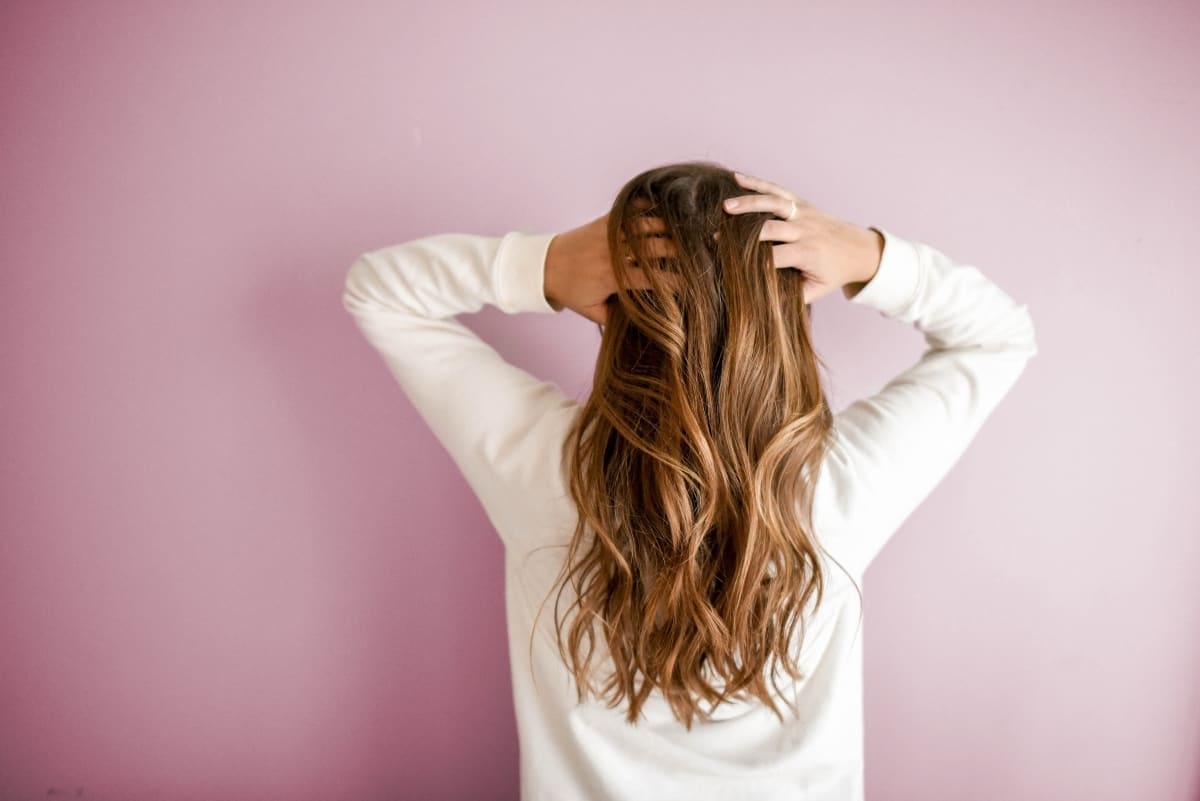Hard water is far more common in homes than you imagine. While most pathogens and minerals are filtered out of the water that comes into our homes, there are still some deposits that can harden the water and make it less than suitable for daily use. Hard water is not necessarily something that you cannot use. However, it is not ideal for frequent use. So, if you are wondering things like, “is hard water bad for me?”, “is hard water bad for your skin?” or “is hard water bad for your hair?”, keep reading to find out more.
What is Hard Water?
Hard water is water that has a higher than normal concentration of dissolved minerals. This could be calcium, magnesium, or other minerals common in water. Water that is pumped into homes, whether from a city or municipal water supply, is filtered to remove any pathogens, debris, bacteria, and minerals. Despite this filtration, hard water minerals can remain in city water.
How does water get hard minerals? It typically happens when the water source flows through limestone deposits. For example, let’s say you live in an area where water is pumped out of a reservoir with a limestone base. Your water is going to be harder than the water coming from a pond or other water source. Similarly, water pumped from springs often has more minerals and is, therefore, harder than other water types.

Understanding Hard Water Classification
There are basic levels that are used to classify how hard water is and how soft it is. Water hardness is measured from 0 to 60 mg/L measurements. Each water system has acceptable levels that may be in the water for it to be used as drinking water for public consumption.
- Soft water is from 61 up to 120 mg per L
- Moderate hard water is 121 up to 180 mg per L
- Hard water is anything over 180 mg/L.
Very hard water will cause limescale build-up in pipes and on faucets. It may cause issues with pipe corrosion, and it can cause issues with the flavor of the water that you are drinking if you drink tap water.
Is Hard Water Bad?
While hard water is not necessarily bad, it is unpleasant. For example, there are a few different things that hard water can cause that may be an issue or a concern for homeowners:
- Dry skin
- Dry hair
- Filmy feeling water
- Strange or mineral taste
- Corrosion of pipes or limescale buildup
With hard water, the biggest concern is limescale build-up. This can cause issues with faucets, showerheads and can even cause corrosion if you have metal pipes. Most residential homes have plastic pipes now, but limescale can still build up in sinks and faucets.
Hard water can also dry out hair. Similar to the issues it causes with skin, when you repeatedly use hard water to wash hair, it can create a film around the hair shaft. The film can make it hard for the hair to absorb and retain moisture, which can cause your hair to become brittle and dry. It can also cause your scalp to feel dry. This can lead to less oil in the scalp and less natural moisture in the hair, and therefore hair that is drier and less resilient.
What Effect Can Hard Water Have On Your Hair?
It’s hard to miss the effect that hard water has on your hair. The minerals and elements floating in hard water can cause:
- Dry hair
- Excessive hair breakage
- Dry scalp
- Frizzy hair
- Easily tangled hair
- Hair Loss or Thinning
Your hair is made up of skin cells. It is a shaft that grows directly from your scalp and gets moisture from the natural oils of the scalp. This is why your scalp and the roots of the hair get oily first. When you use hard water for a prolonged period, the minerals that are in the water can form a film on the scalp and hair shaft. This film makes it hard for moisture, be it water or other conditioning treatments, to penetrate and moisturize the hair shaft.
How To Treat Your Hair From Hard Water Damage
Without the natural oils from your scalp and the added moisture you give your hair, it can become dry, brittle, it can break off, and your scalp can become red and irritated.
You are also likely to feel that the water inside your home feels different. The most common description for hard water is that it feels slippery or filmy, almost slimy. It may also feel slightly thicker than regular water. This is because of the higher concentration of dissolved minerals.
The best method for removal of the film is to use a clarifying shampoo for your hair.
Some great shampoos for restoring your hair following hard water damage are:
- The Hardwater Wellness Collection by Malibu C: If you’re going to put “Hardwater Wellness” in a name, it has to be for something. In Malibu C’s case, it’s for fighting away pesky minerals. According to Malibu C’s website, the collection is a sulfate-free solution for wiping away mineral buildup and remedying a dry, flaky scalp.
- Neutrogena T/Gel Therapeutic Shampoo: If hard water is really irritating your scalp and causing fussy flaky dandruff, Neutrogena has the cure for you. Find soothing relief with this therapeutic shampoo that’s made with coal tar extract for long-lasting treatment. Give the shampoo a deep massage along your scalp and let the product lather before rinsing.
- Ion Hardwater Shampoo: Enjoy a deep lather in your tresses with the popular ION Hard Water Shampoo. This shampoo delivers a mineral-eliminating cleanse suitable for all hair types. Preserve shine and moisture in your hair while fighting dryness and flakes with this 100% vegan treatment.
Check out our guide to learn more about the best hard water shampoo to fight hard water and frizzy hair.

How To Treat Hard Water At Home
There are now more solutions than ever before to help soften water and make it more acceptable for daily use. The best method for taking care of hard water in the home is with a whole home water filtration system.
If you’re only concerned about the hardness of your water in the shower, you can purchase faucet attachments and showerheads that help to filter shower water.
If you have a larger hard water issue, you should, of course, search for more widespread solutions. For those homes that frequently deal with hard water, we suggest a whole home water filtration system. These types of filtration systems clean your water without you having to add any extra faucets or showerheads. Some companies, like ONIT Home, will even install your whole home water filtration system for you. This cuts down on your workload and ensures the job is getting done right the first time.
Using a whole home filtration system is the dream scenario because it purifies water as soon as it comes into the home. This filter then filters all the water coming into the home so that you do not have to deal with adding extra filters on your own or dealing with any other problems that might arise. Whole home filtration systems are a fantastic way to make sure that every bit of water that comes into your home is clean before you use it.
These filtration systems have a simple filter that you change out at specific intervals to ensure that the water is going to be consistently clean and filtered. The process starts with a water test. ONIT Water will send you a water test that helps them to identify the minerals that are in the water that you are drinking and using.
How To Filter Out Hard Water and Other Impurities
Combat hard water with a water softener. Water softening systems remove contaminants and minerals from every drop of water. These automated systems provide clean, soft water that’s healthy for your hair as soon as you turn on the skink. A water softener can help restore life into your hair while preserving your household appliances that often wear down from hard water minerals.
Take filtration a step further with a reverse osmosis system. This system uses a carbon module to remove larger sediment from the water to start. The filter then uses a reverse osmosis membrane to remove smaller particles. The activated carbon module absorbs substances that cause odors and tastes, and the post-filter removes any other residual substances.
Another solution is a UV light purifier. This system destroys pathogens, microbes, and other viruses that might be present in your water.
Companies like ONIT Home offer professional installation so you can be certain your filtration system is going to work well and make sure your water is suitable for daily use.

Take Care Of Your Hair With ONIT Home
Hard water can be hard on your hair, your skin, and your home. With a full home filtration system, you can get water that is suitable for use and you can save money by not having to buy single filters, bottled water, or other filters. A whole home filtration system is a great option that can help you get the water you need and want and make sure that your water is clean and safe.
Take care of all your household needs with ONIT Home. We’re your one-stop-shop for completing big projects and creating a space you can enjoy. From whole home water filtration and smart home security to solar power systems and insurance, we can do it all.



